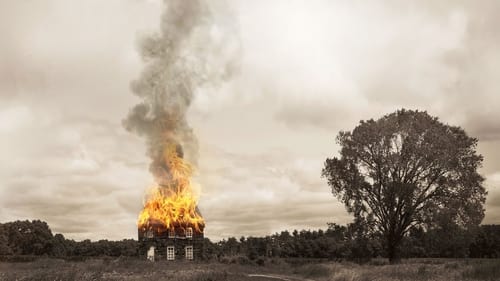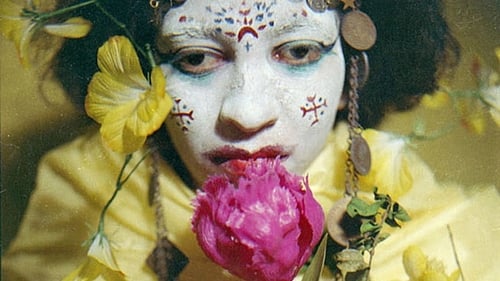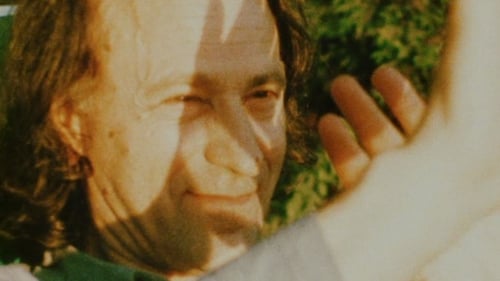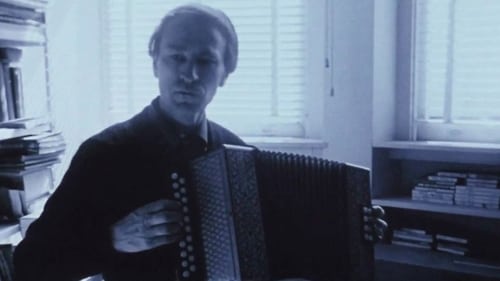Richard Foreman
출생 : 1937-06-10, New York City, New York, USA
약력
Richard Foreman is an American playwright and avant-garde theater pioneer, founder of the Ontological-Hysteric Theater.

바바라 루빈은 60년대 미국 언더그라운드 문화의 중심에 선 인물이었다.
감독은 바바라 루빈의 다양한 활동과 생애를 살펴보며 그가 이룬 성취와 후대에 끼친 영향을 짚어본다.
밥 딜런, 앤디 워홀, 앨런 긴즈버그 등 바바라 루빈과 가까웠던 예술가들의 당시 모습도 확인할 수 있다.

Still Photographer
아름다운 아내 던, 사랑스러운 딸 메리와 함께 여유와 행복을 모두 누리며 살던 스위드의 삶은, 마을에서 일어난 폭발 테러 살인사건이 메리의 반정부 운동 개입과 관련이 있다는 의혹이 붉어진 후 처참하게 무너져 내리기 시작한다. 사건 이후, 자취를 감춰버린 버린 메리. 모든 것을 내던진 채, 딸을 찾기 위해 자신의 남은 인생 모두를 쏟아 붓는 스위드는 자신의 삶이 파국으로 치닫는 것을 목격한 뒤에도, 그녀를 결코 포기하지 못한다. 자기 자신조차 잃게 만든 희생, 끈질기게 딸의 행방을 쫓는 아버지. 하지만 여전히 생사조차 알 수 없는 딸. 마침내, 스위드는 오물이 뒤덮인 한 폐허에서 믿을 수 없는 모습을 한 메리와 마주 하는데…

Screenplay
Since the late 1960s, the almost annual productions of Richard Foreman’s Ontological-Hysteric Theater have been among New York’s artistic highlights. A legend of the avant-garde theater, Foreman is also a passionate film fan, whose taste ranges from American avant-garde to Manoel de Oliveira. ONCE EVERY DAY marks his first foray into feature filmmaking in 35 years. Highly visual, complexly edited and without a traditional narrative, the film zeroes in on a group of 25 people acting out a series of semi-ritualistic behavior patterns. But their eccentric impulses are aborted in unpredictable ways with each attempt at action or development. According to the director, “The film slowly evolves a time-mosaic of reformatted consciousness.” Longtime admirers of Foreman’s work will see an intriguing adaptation of his unique theatrical style to the cinema. And for everyone else: Welcome to the extraordinary world of Richard Foreman.

Director
Since the late 1960s, the almost annual productions of Richard Foreman’s Ontological-Hysteric Theater have been among New York’s artistic highlights. A legend of the avant-garde theater, Foreman is also a passionate film fan, whose taste ranges from American avant-garde to Manoel de Oliveira. ONCE EVERY DAY marks his first foray into feature filmmaking in 35 years. Highly visual, complexly edited and without a traditional narrative, the film zeroes in on a group of 25 people acting out a series of semi-ritualistic behavior patterns. But their eccentric impulses are aborted in unpredictable ways with each attempt at action or development. According to the director, “The film slowly evolves a time-mosaic of reformatted consciousness.” Longtime admirers of Foreman’s work will see an intriguing adaptation of his unique theatrical style to the cinema. And for everyone else: Welcome to the extraordinary world of Richard Foreman.

Stage Director
An opera by John Zorn and Richard Foreman

Himself
In this entrancing documentary on performance artist, photographer and underground filmmaker Jack Smith, photographs and rare clips of Smith's performances and films punctuate interviews with artists, critics, friends and foes to create an engaging portrait of the artist. Widely known for his banned queer erotica film Flaming Creatures, Smith was an innovator and firebrand who influenced artists such as Andy Warhol and John Waters.

"The theater is about sex." At least according to Richard Foreman, the father of the Ontological Hysterical Theater. THE ONTOLOGICAL COWBOY documents Foreman’s invocation of the "manifest destiny" of the avant-garde theater, King Cowboy Rufus strolling down off San Juan Hill with a sigh, waving his handkerchief. Foreman plays himself, and the cast pantomimes his preoccupations. If "the cast and crew suffer alike," it’s all for a good cause: the violent rebirth of the American theater, with Foreman as its midwife.

Writer
Written by legendary theater artist, Richard Foreman, Planet Earth: Dreams revolves around the desire to escape -- not to a Dream world -- but to a mode of consciousness in which one is able to function in real life with the same mental freedom the dream mind has available in the realm of sleep.

Recorded Voice
A filmed play by Richard Foreman.

Director
A filmed play by Richard Foreman.

Self
A film collage tracing the story of the lives, loves, and deaths within the artistic community surrounding Jonas Mekas.

Writer
Adaptation of an avant-garde play about Rhoda, a hysterical heroine who feels oppressed by the people around her. She suffers through her birthday party, goes to see a doctor, plans a vacation, argues a lot and even breaks the fourth wall.

Director
Adaptation of an avant-garde play about Rhoda, a hysterical heroine who feels oppressed by the people around her. She suffers through her birthday party, goes to see a doctor, plans a vacation, argues a lot and even breaks the fourth wall.

Director
Avant garde film from 1978, by playwright and filmmaker Richard Foreman.

Director
A "young woman who finds herself surrounded by the relics of Western culture" is the subject of Richard Foreman's formal tableaux. The narration centers on a young woman's struggle to find a relation between her body and her self as mediated by language. The text is a poetry of formal relations that carries personal and historical implications, including the desires of the woman paradoxically voiced by a male narrator. The title suggests the vivid virtuality of dreaming; scenes repeatedly refer to both reading and sleeping.

Self
“1950년부터 영상 일기를 찍었어요. 언제나 볼렉스 카메라를 들고 다니며, 내가 만나게 되는 상황이나 친구, 뉴욕의 모습, 계절의 변화 등 즉각적인 현실에 반응하고자 했죠. 어떤 날에는 열 프레임, 어떤 날에는 10초, 또 어떤 날에는 10분 정도 촬영을 했습니다. 물론, 아무것도 찍지 않은 날도 있었어요. 일기를 쓸 때는 ‘회상’이라는 절차가 수반되는데, 보통 책상에 앉아서 그날 하루를 되돌아보며 일기를 써 내려가기 때문이죠. 한편 영상(카메라) 일기의 경우, 어떤 순간에 대한 즉각적인 반응을 포착할 수 있습니다. 특정 대상을 카메라에 제대로 담던 담지 못하는 것과 관계없이, 순간의 반응 자체를 카메라가 기록합니다. 어떤 상황에 다시 돌아가 촬영을 재개한다면, 그것은 재연된 영상이 되어버리죠. 이는 사건이나 감정이 수반될 수밖에 없습니다. 일어나는 일을 있는 그대로 포착하려면, 내가 사용하고 있는 도구(여기에서의 도구는 볼렉스 카메라를 말한다)에 대한 온전한 이해가 필수적입니다. 내가 반응을 보이는 현실뿐만 아니라 내가 반응함과 동시에 내 감정의 상태(와 모든 기억)까지 포착할 수 있어야 하기 때문이죠. 다시 말해, 카메라를 들고 촬영이 이루어지는 바로 그 장소에서 영상의 구조화(편집) 작업까지 끝낼 수 있어야 합니다. 월든에서 여러분이 만나는 모든 영상은 카메라에 담겨있는 영상과 동일합니다. 1964년부터 1968년까지 촬영한 영상을 순차적으로 연결한 것입니다. 사운드트랙의 경우, 목소리, 지하철 소리, 길거리 소음 등 촬영 당시 수집한 사운드에 쇼팽의 음악-난 로맨틱한 사람입니다-과 때때로 의미 있고 또 때때로 의미 없는 사운드를 섞어 제작하였습니다.”

"The whole film are non-art portraits of people in which they do what they want with this hat – and therefore, act or stand in front of my camera. It’s only love: therefore it can’t harm you". Joyce Wieland.











